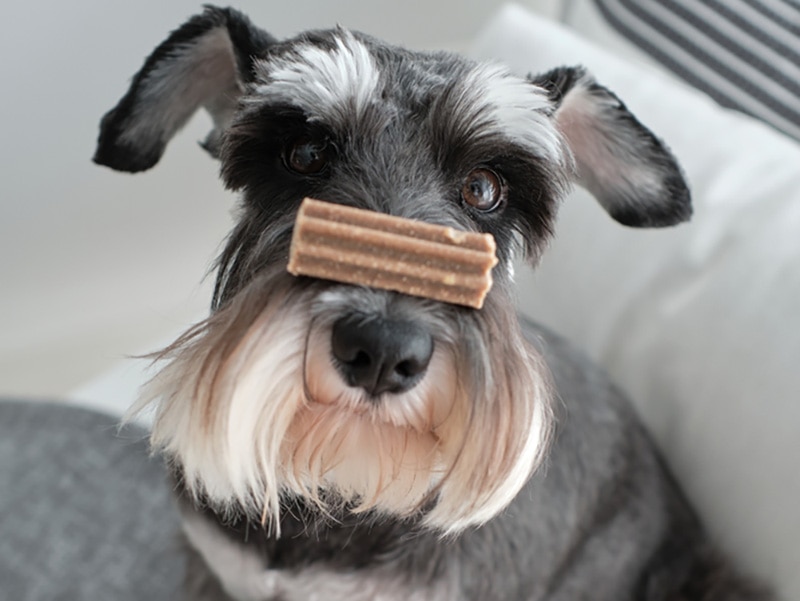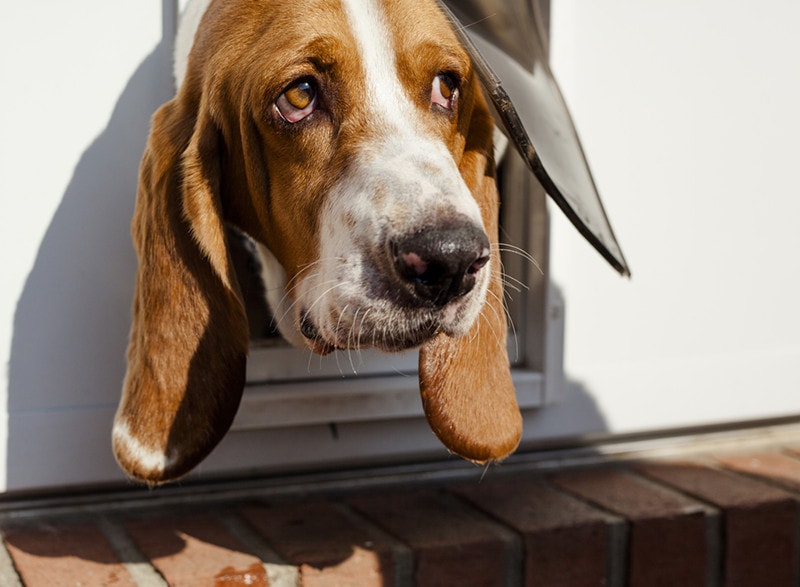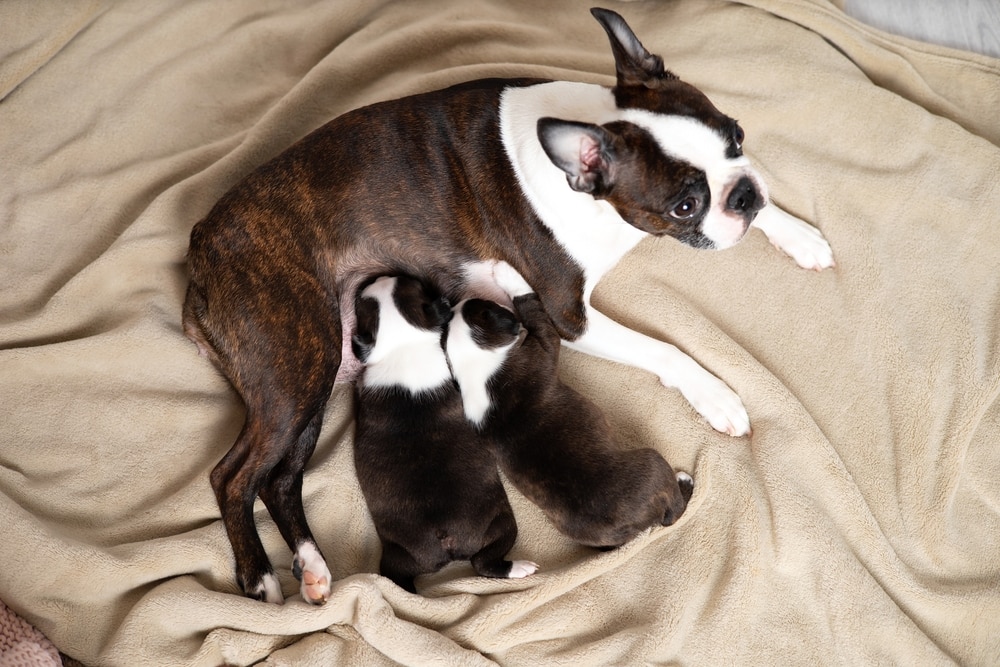Male vs Female Bichon Frise: The Key Differences (With Pictures)
Updated on
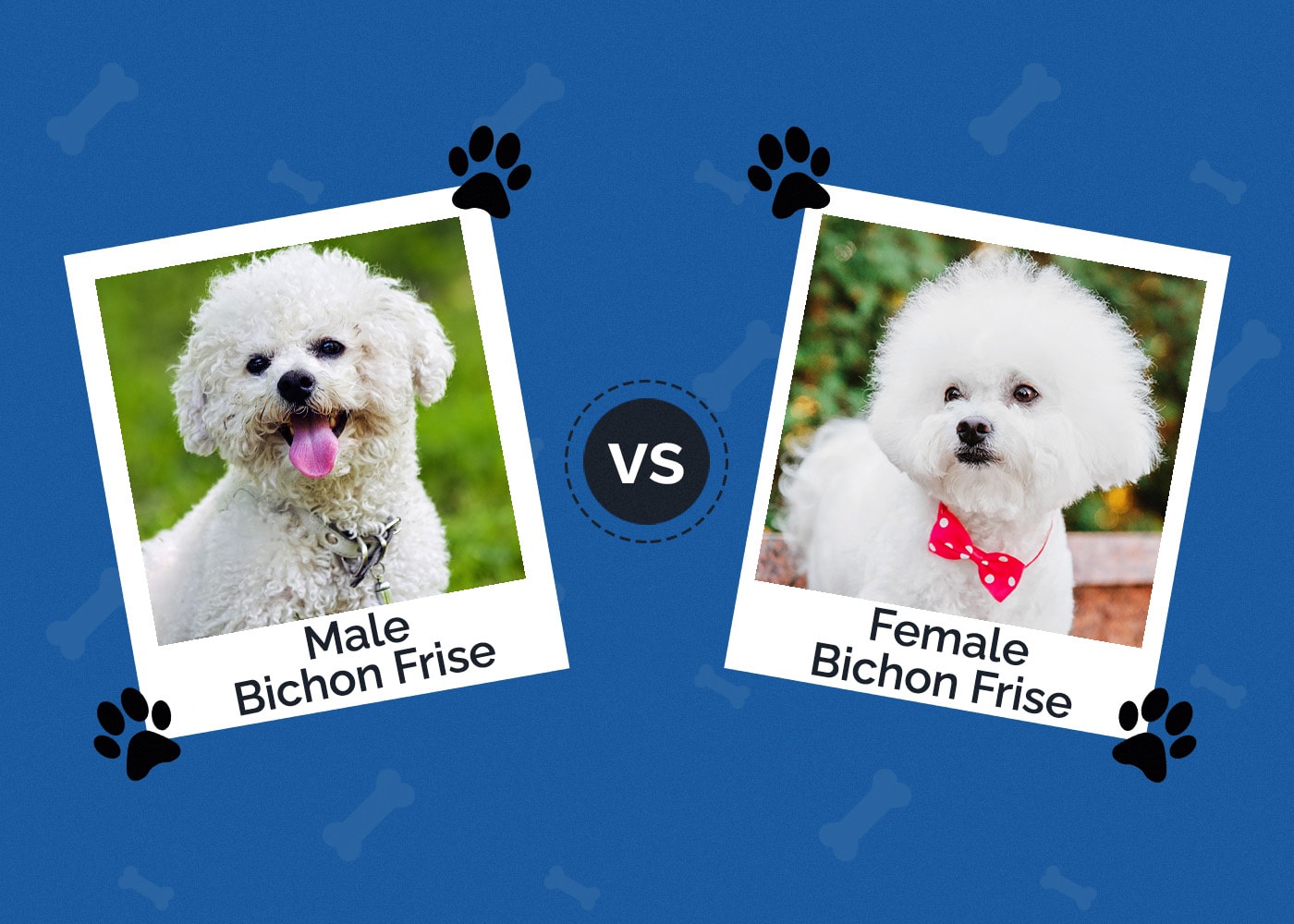
The Bichon Frise is an adorable and loving little white fluff ball that loves to play. They are cuddly and cute, and adding a Bichon Frise to your family will bring nothing but laughs and joy.
As far as genders, you can’t tell a male Bichon Frise from a female simply by appearance. They are the same height and weight with the same adorable features. They both have curly, white fluffy hair and the same black eyes and noses. Both genders can have separation anxiety, and if you’re rarely home, this breed might not be suitable for you.
We’re glad you’re here because we will go over the differences between males and females so that you can determine which gender might be more suitable for your household.
Visual Differences
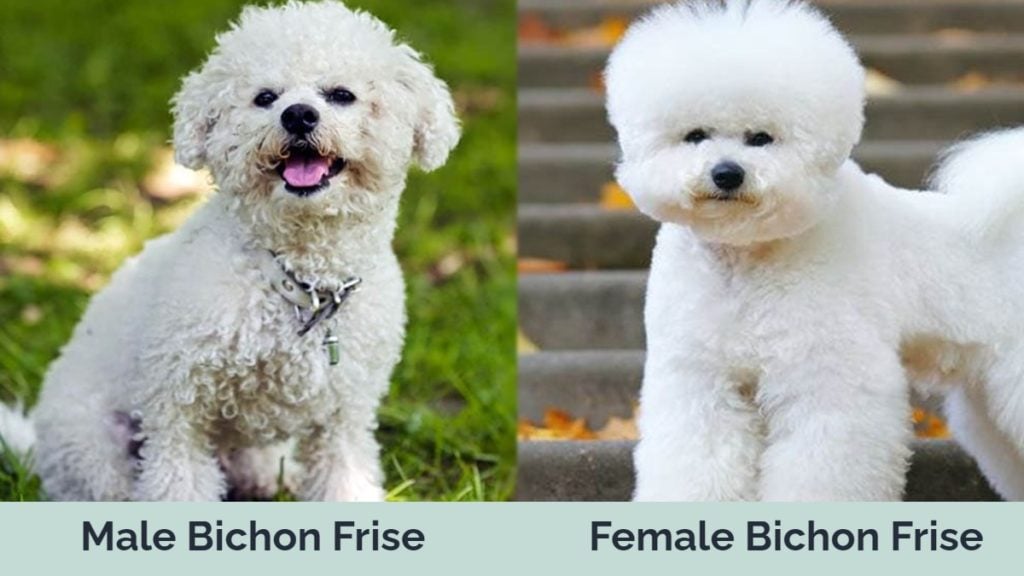
At a Glance
- Average height (adult): 9½ – 11½ inches
- Average weight (adult): 12 – 18 pounds
- Average height (adult): 9 ½ – 12½ inches
- Average weight (adult): 12 – 18 pounds
Bichon Frise Pet Breed 101
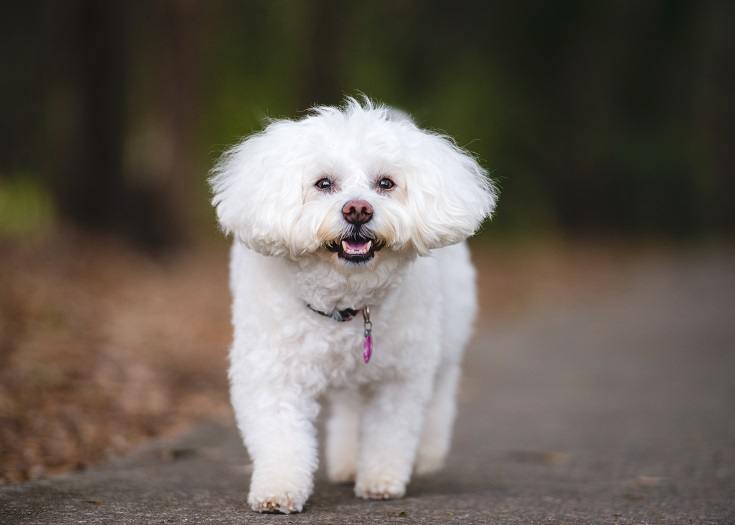
The Bichon Frise is a happy-go-lucky dog breed with a fluffy and curly white coat. Their colors are white, white and buff, white and apricot, and white and cream. These little dogs make exceptional companions and love their humans. They are playful, curious, cheerful, and adapt well to their environments. These little entertainers are quick learners. However, their quick learning ability seems to go by the wayside when it comes to housebreaking. It is possible to housebreak these little dogs, it just takes a little more patience and time compared to other breeds.
The Bichon Frise gets along very well with other dogs and children, and they love to play. They make great watchdogs because of their curious nature, but don’t expect them to charge at a stranger. They love everyone, and they may bark just because they do not know who the stranger is.
Their coat is considered hypoallergenic and has a soft, almost velvety touch. They have large black eyes and black noses that seem to blaze from their rounded white heads, and they love to entertain both their humans and any pet friends that may be around.
Their fluffy coats require a bit of maintenance. They should be brushed two to three times a week. Owning a Bichon Frise means you’ll need a groomer, as they will need a bath and clipping every 4–6 weeks. To sum it up, the Bichon Frise makes a wonderful addition to any family, and this little white fluff ball will add smiles to your day.
Male Bichon Frise Overview
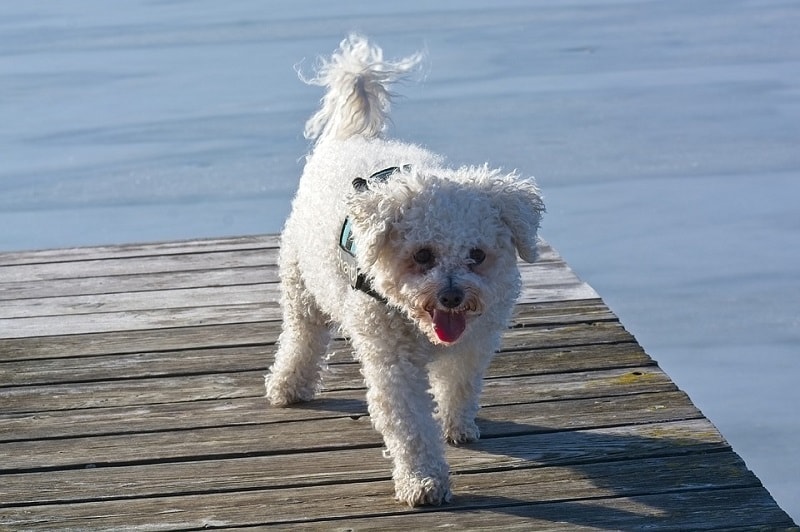
Personality / Character
The male Bichon Frises are a little more playful than the females. The males tend to have the desire to cuddle with their humans and want to be with them wherever they go. In other words, the male Bichon Frise will be your shadow around the house.
They love to be the star around people and will entertain with ease. The male can be a bit clingy, but you won’t care with the constant smile on his little white face. Males want to be included in any fun and partake in any activities. They also seem never to leave their puppy stage as far as temperament, as they seem to be the class clown and love to be silly and goofy.
Training
Both males and females are easy to train because they are so smart. However, the male will want to please you more and will do his best to see you happy. With their playful and inquisitive nature, training is much easier than with the females, and males seem to be eager to learn new tricks. Be sure to use positive reinforcement with these pups because their personalities can be quite sensitive, and you don’t want to raise your voice or make them uneasy with you.
Health & Care
The male Bichon Frise is generally healthy, and health issues usually affect both genders. However, one health concern that could develop in unneutered males is prostate disorders. Neutering the male greatly reduces the risk of prostate cancer and other health concerns regarding the prostate.
Neutering your male also completely eliminates the risk of developing testicular cancer. Cryptorchidism can also be seen in the male Bichon Frise, a condition in which one or both testicles do not descend into the scrotum.
Breeding
Males can reach sexual maturity at 5 months of age, but some males may not reach sexual maturity until around 12–15 months of age. If you choose to breed your male, ensure that they are healthy and have no predisposed health issues that could be passed on within a litter.
- More outgoing
- More affectionate
- They bark when left alone
- Can be clingy
Female Bichon Frise Overview
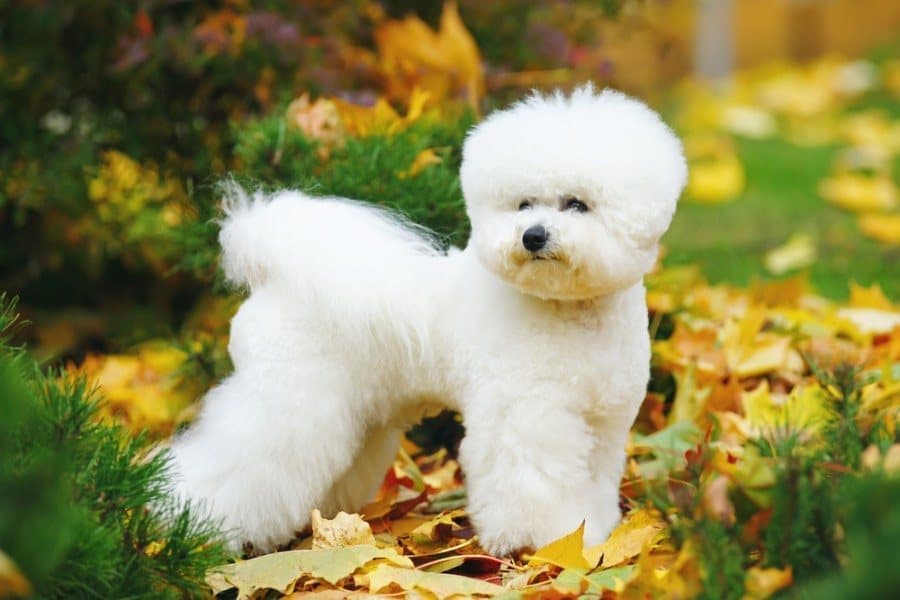
Personality / Character
The females are just as amazing as the males. However, there are a few differences between the two. The female can be aloof at times and is a bit more independent. Keep in mind that this doesn’t mean the female ignores her humans. She still loves to play and cuddle, but she is more prone to mood swings.
When she’s not in the mood for snuggles or playtime, she will retreat to her quiet place for some space. She can also be dominant and isn’t shy about letting you know if she disapproves of something. Females can still be playful and clingy but are more reserved than males.
Training
Females are a little more stubborn when it comes to training. They have to be in the mood to have a successful and productive training session, whereas the males want nothing more than to please you. If the female is not in the mood, she couldn’t care less if she pleases you or not. Bear in mind that not all females are stubborn. Just like humans, all dogs have their own personalities.
Health & Care
Spaying your female is the best thing you can do for her overall health. Mammary tumors are common in intact females, with roughly 50% malignant. After a female’s third heat cycle, the risk increases by 26%. If you’re not planning on breeding your female, it’s best to spay before the first heat cycle–or at least the second–to greatly reduce the chances of mammary cancer developing. Spaying your female may also reduce the risk of developing uterine cancer.
Breeding
Females may go into heat at around 1 year of age and will go into heat every 6 months thereafter. After going into heat, the female can be ready to breed 10–12 days later. You should not breed a female until she is fully grown to reduce possible health complications. An average litter is anywhere from four to six puppies.
- More independent
- Loves to play
- Can be aloof
- Prone to mood swings
Health Concerns in Both Genders
Certain health issues affect both genders. They are as follows.
- Luxating Patella: This condition is where the kneecap slips out of place.
- Kidney Stones: Kidney stones affect females more than males, but they can affect males, too.
- Portosystemic Shunt: PSS for short, this condition affects the liver.
- Hip Dysplasia: This degenerative condition is a loosening of the hip joint, causing pain.
- Cushing’s Disease: The adrenal gland secretes too much cortisol (stress hormone).
- Skin Allergies: This causes scratching, licking, and ear infections but is easily treated.
Which Gender Is Right for You?
Both genders of the Bichon Frise are adorable, but as you can see, some personality traits can differentiate the two. Males are always up for playtime and love to spend time with their humans. He is not as stubborn as the female when it comes to training, and the female can be a bit aloof and more independent.
Both genders can suffer from separation anxiety and will bark when left alone, but males are more prone to this than females. Remember that this doesn’t apply to all genders, as all dogs have their own personalities.
In a nutshell, if you want a dog that’s always by your side and will gladly accept cuddles, the male is perfect for you. If you want a more independent dog, the female may be more suitable.
Featured Image Credit: (L) Vladimir Nenezic, Shutterstock | (R) OlgaOvcharenko, Shutterstock

